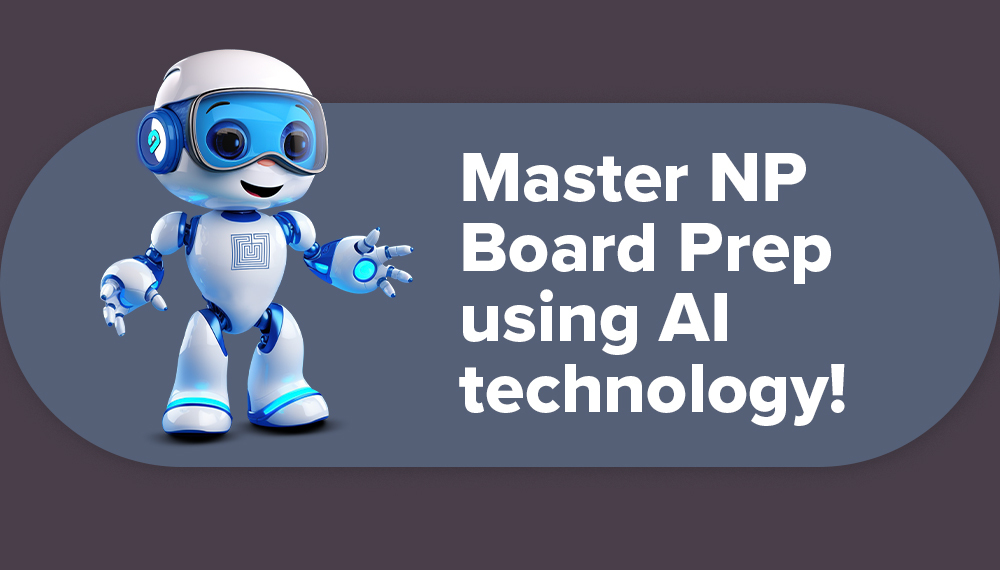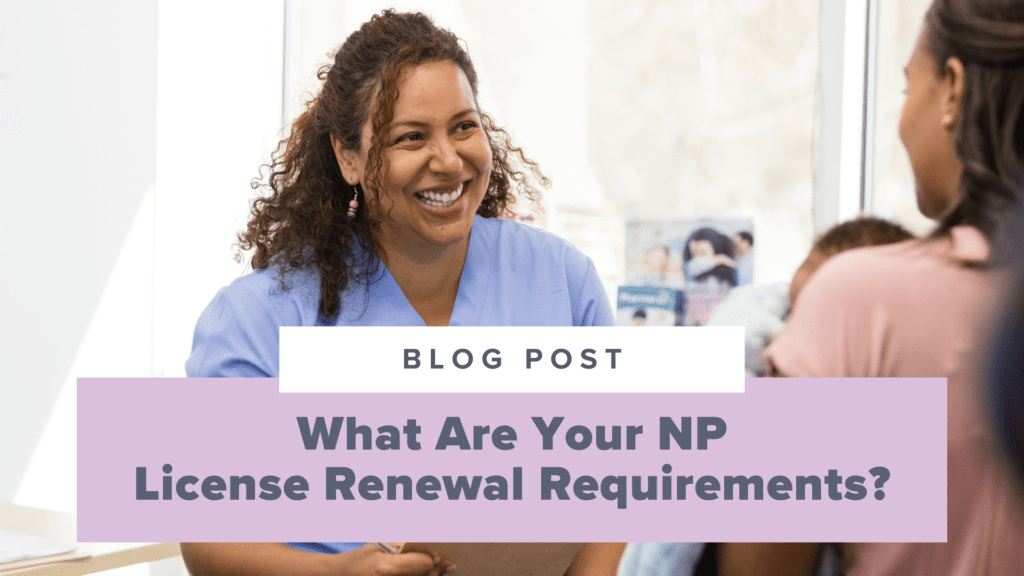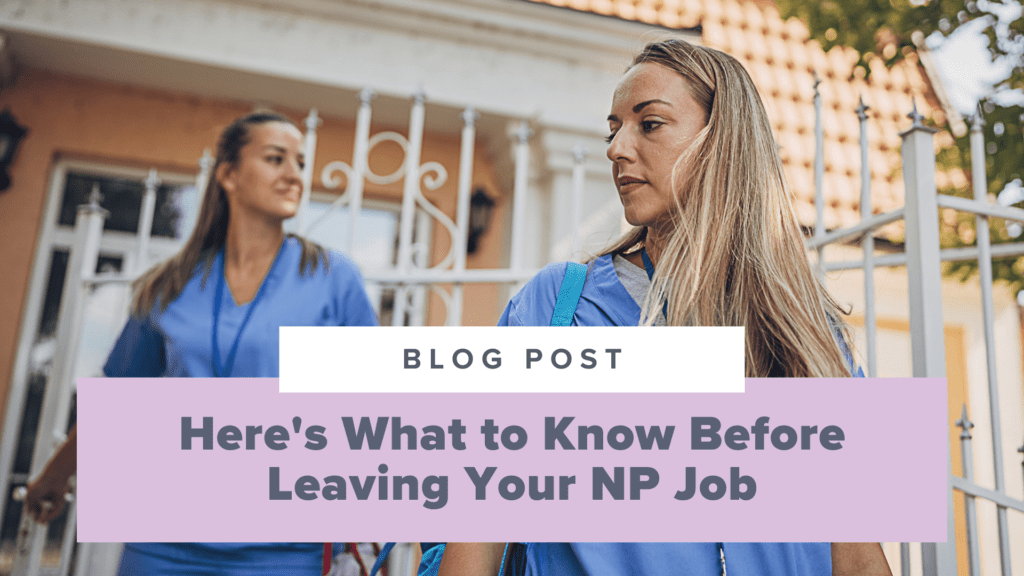What to Expect in Your First NP Job That You Might Not Realize: An Interview with Anna Miller
- by
- Feb 29, 2024
- Articles
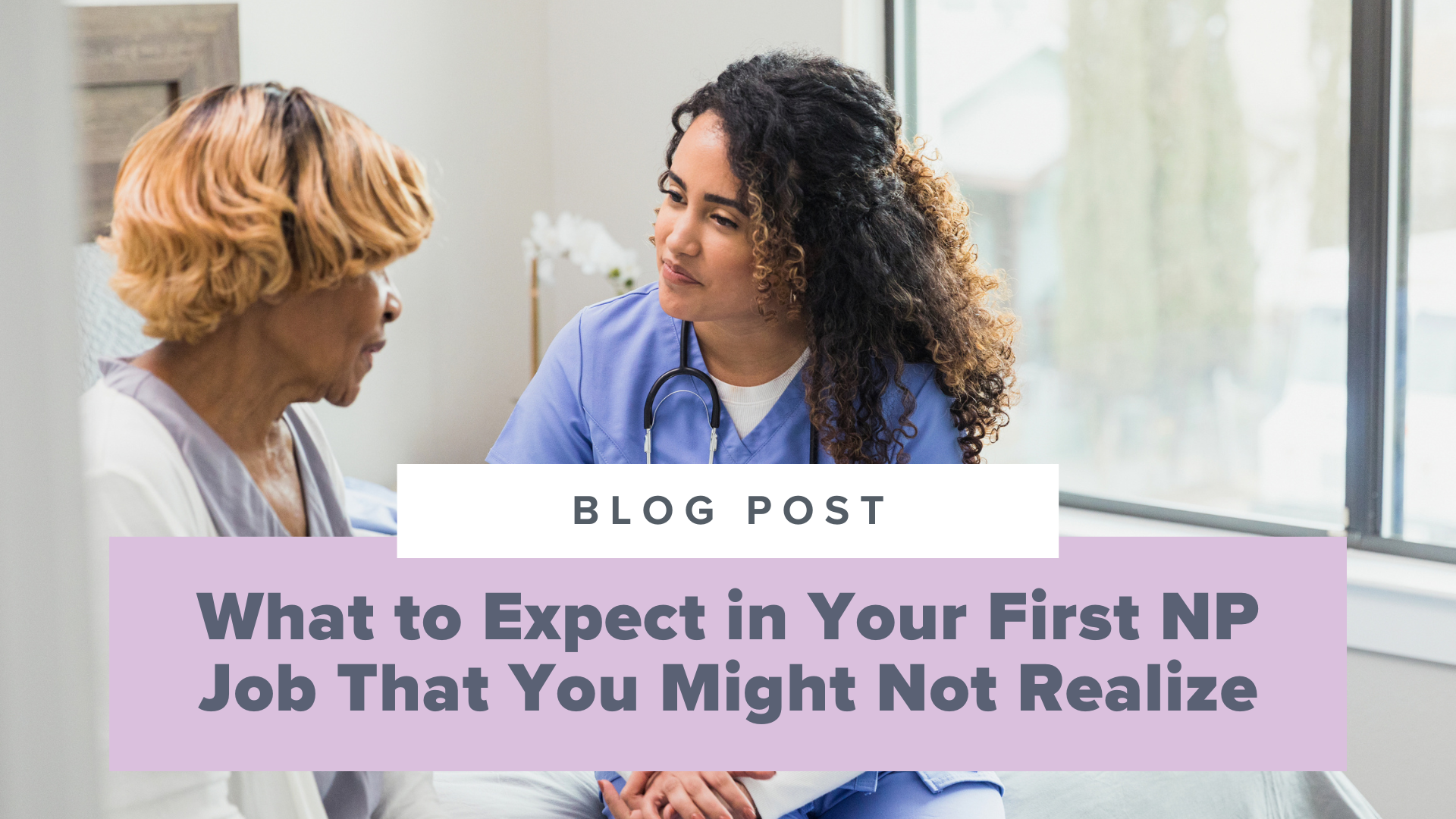
Stepping into the world as a new NP can bring a mix of excitement and nerves! With graduation season approaching, there’s a sense of anticipation and curiosity among NP graduates seeking real-world guidance.
That’s why I caught up with Anna Miller from SMNP Reviews to share insights on what being a new NP truly involves. In this chat, Anna discusses the unexpected hurdles that may accompany your new role to help you build confidence before your first day. Whether you’re on the brink of graduation or simply envisioning the future, this conversation offers a guide to kickstarting your journey as a real-deal NP.
With that, let’s dive into the interview!
What Might Surprise You About Your First NP Job
Hannah:
Hey Anna! Thanks for joining me today. Before we jump into the topic of what to expect in your first NP job, would you be able to give a quick intro for our readers?
Anna:
Sure! I’m a family nurse practitioner with a background in women’s health. My role at SMNP Reviews is on the educational side of things, so I’m the lead content developer for our undergraduate and NP content. I’m also an instructor in our course videos, but initially I started with SMNP Reviews as a live instructor!
How to Prepare For Your First NP Job
Hannah:
Awesome! So diving into the topic itself, what are a few things you’d recommend to someone who just got their first NP job? Is there anything they can do before the job starts to help them transition into their new role?
Anna:
Before your first day as an NP, you should prepare as much as you can. You’ll want to figure out what type of setting it is. So is it primary care, women’s health, etc., then find the resources you’re going to want ahead of time. This may be downloading NP apps you’re going to use, like Epocrates or UpToDate. Or for women’s health, there’s a lot of really good CDC apps for contraception and Pap smear recommendations.
So download the apps you’ll need, get familiar with your resources, reach out to the office manager, and see what resources are available from your employer. A lot of times they have things for you already set up!
When it comes to your very first day on the job, I also recommend mapping out and practicing your driving route at the time you’re going to be heading to work, just to make your first day a bit less stressful. I’m someone who gets really stressed if I’m running late!
So just know where you’re going, where your office is, what’s the office setup, and how you’re going to introduce yourself to patients. Anything that’ll help you mentally adjust to that first day as an NP.
And if it’s been a while since you graduated, maybe take a refresher course, or take another look at the content. If you’re going somewhere where you need certain skills, take the time to go to skill workshops or get different certifications. All of that can really help that transition into your first job.
What to Expect in Your First NP Job
Hannah:
That’s super helpful! So going to the next question, when you’re starting your first NP job in general, what are a few things you should expect? Will there be more independence, more responsibility? What might you encounter?
Anna:
All of the above! There are lots of things that are different from being an RN. There’s absolutely a significant increase in independence. You’re now an NP making diagnoses and decisions about patient care plans.
You learn a ton in school and in your clinical rotations, but you don’t really get that full responsibility until you’re on your own. So there’s a big adjustment and with that, there’s a lot more responsibility for patient outcomes. Plus, it’s not just those clinical decisions, but also understanding the legal and ethical implications of practice.
I think you have to be prepared for a very steep learning curve. Your first year is about just growing into the role. The main focus should be figuring out what your strengths are, how to keep developing, and keep improving.
One thing that surprised me was the amount of administrative responsibility. There’s a lot more documentation you have to do every day!
On-the-Job Skills You’ll Learn in Your First NP Job
Hannah:
Right, and I’m also curious about some on-the-job knowledge you might not even think about until you get there? What would you only be able to learn while working your first full-time NP job, versus in the classroom?
Anna:
I think some of the on-the-job things are how you talk with patients, how to have difficult conversations with patients, how to manage patients who either aren’t responding to treatment, or maybe they can’t afford the treatment. School is really good at teaching you textbook answers and first-line treatments. But then you get into practice, and it’s a whole different ball game.
You may have a situation where a patient’s insurance isn’t going to cover the treatment that you know would work. Now what do you do? Or, maybe a treatment plan didn’t work. Now what do you do? Maybe you didn’t get the lab results you hoped for. How do you tell your patient that?
Other skills like managing referrals, managing care among different teams…all of that is different when you’re in the real world.
Misconceptions About Your First NP Job
Working with Patients
Hannah:
Going off of that, what would you say are some misconceptions that new NPs might have about their job? Maybe they think it’s gonna be exactly like the classroom, or that it’s gonna be this “bright shiny world” after NP school?
Anna:
It does feel like it’s going to be this bright, shiny world—you’re so excited to go into it, but it’s not what you think it’s going to be. Even your clinical rotations are somewhat like the classroom, because you’re reinforcing that classroom learning and you’re talking through scenarios with your preceptors.
But then, you get in and it can be a lot different, especially if you’re working with a population you didn’t have a ton of clinical experience with. And so you’re just dealing with a whole different ball game.
I think another thing is just the struggle with the transition from RN to NP, because most NPs have been RNs for quite some time. We’re used to that. We’ve been at the hospital or the bedside or in a clinic or whatever. And we’ve almost become an expert RN. But when you transition to an NP, you’re a novice again.
And while you can lean on some of the experience you had, there are brand new responsibilities. There’s more independence, more stress, and uncertainty. Being that novice again can be tough.
I also think that nursing as a whole is such a team dynamic when you’re an RN, especially if you’re working in a hospital and you have a whole team around you. But a lot of new NPs going into their first job will be basically the only provider there. And so that can be a very big change. So, where are your resources now? How can you advocate for yourself? How do you find help? I think those are some things people don’t realize.
Salary & Job Offers
Hannah:
Right, that makes a lot of sense. So, a question on the unrealistic expectations point. Are there any unrealistic expectations that NPs might have about the role itself? Not interacting with patients, not doing the job, but more about the salary, their employer, or negotiating their contract?
Anna:
I think pay is one of those areas that’s kind of a shock at first, depending on where you’re working. I’ve seen a lot of people get their first offer and be like, “I was making more as an RN. I can go do travel nursing and make way more than this. So why am I doing this?” I think that’s something to be aware of and negotiate in contracts.
There’s also the misconception that you have to accept any job you get. I’ve been told to just accept the first thing offered to get experience. And I definitely see people do that a lot, because they’re having a hard time landing a job they want.
But I think a lot of times it’s not beneficial in the long run to just accept your first offer without a second thought, especially if it’s an area you don’t want to be in. I know for me personally, everyone was always saying, “You need to do this, you need to get experience in all of primary care.” But I knew I wanted to do women’s health. I really like women’s health, I know FNPs can work in women’s health, so why would I get a job I know I’m going to be less satisfied in? And so I think people fall into that trap sometimes.
The Bottom Line: Be Realistic & Advocate For Yourself!
Hannah:
Thank you for sharing that!
Just to wrap things up, why in general would you say it’s important to manage your expectations going into your first job?
Anna:
I think it’s about being realistic, but also knowing where you can advocate for yourself. It’s not realistic to start a new NP job and be the only provider in the office. That’s not safe. That’s not realistic. And so, it’s knowing where to advocate for yourself and how to set yourself up for success.
No matter where you go, it’s going to be challenging, but it gets better over time, especially if you’re in the right environment and have the right support. I think ultimately all of that leads to more satisfaction in the role. I’ve seen so many NPs go back to their RN role for a variety of reasons, or just leave nursing altogether. So I think when you know what to expect and you advocate for yourself, it just helps with all that.
Hannah:
Thank you, Anna!
Further Reading
Looking for more (free!) content to help you along your NP journey? Check out these other posts on the SMNP Reviews blog!
Search the Blog
Join our Facebook Group!
Get FREE support and encouragement from thousands of NP students and our NP Support team.
Learn More3 Study Hacks to Conquer Your NP Exam!
Download these tips that have helped thousands of students pass their NP board exams.
Download NowInstitutional Partnerships
Are you a faculty member and would like to bring Sarah Michelle’s resources to your school? Email us at nursinggroups@blueprintprep.com for special institutional pricing or click on the link below to learn more.
Learn MoreGroup Discounts
Are you a student and have 10 or more classmates interested in purchasing Sarah Michelle’s courses? Email us at nursinggroups@blueprintprep.com for special pricing.
